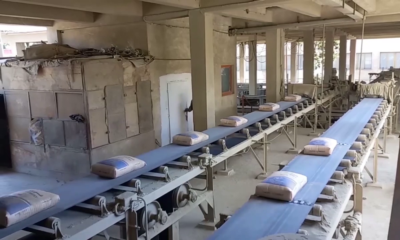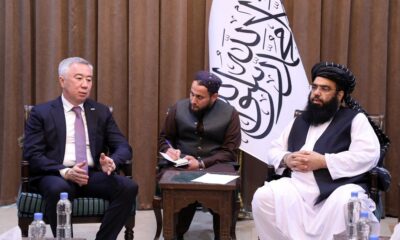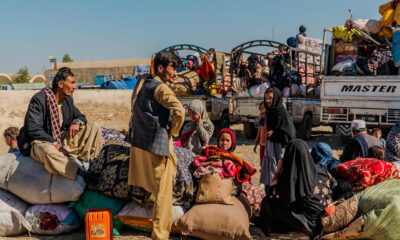Business
IEA discusses easing banking transactions with Kazakhstan
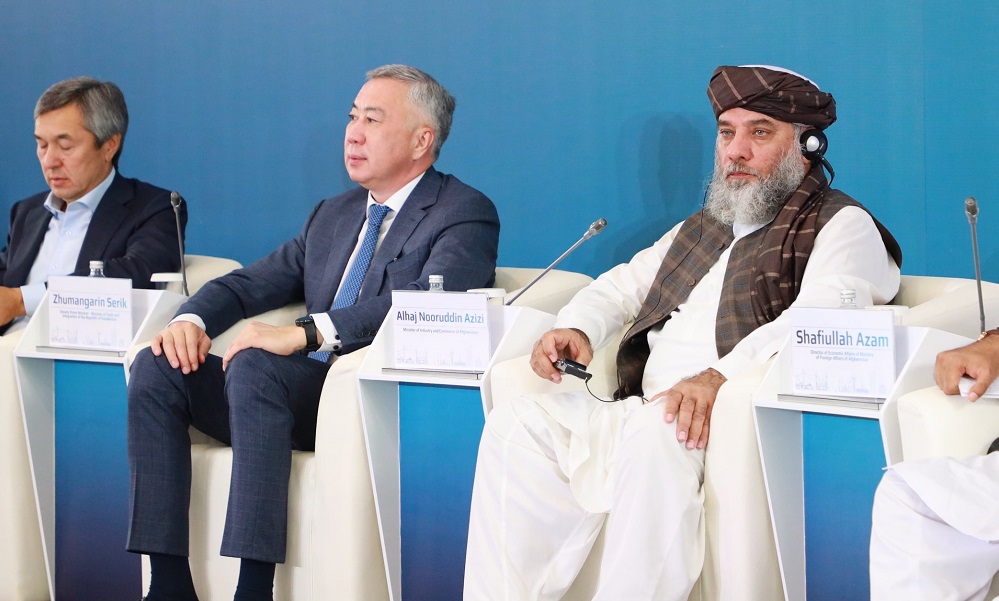
A delegation of the Islamic Emirate of Afghanistan (IEA) discussed facilitating international financial transactions with private banks on a recent trip to Kazakhstan in a bid to ease the Afghan banking sector’s isolation, the acting commerce minister said.
Nooruddin Azizi, acting Minister of Commerce and Industry, led a business delegation to Kazakhstan last week.
In addition to banking he discussed the possibility of preferential trade tariffs, telecommunications projects and transit routes, including for possible shipments of Russian oil to South Asia, he told Reuters in an interview on Wednesday.
“We had teams from Da Afghanistan Bank (Afghanistan’s central bank) and private banks in Kazakhstan, they discussed and are trying to find good ways to decrease the price of financial transactions … we don’t have any banking limitation with Kazakhstan,” he said.
Afghanistan’s banking sector has been hampered and international transactions severely limited since the IEA administration took over two years ago as foreign forces withdrew.
Some IEA leaders are subject to United Nations and United States sanctions. Many international banks have limited transactions with Afghan banks to reduce risk, economists and diplomats say, contributing to a stall in the financial system.
That has been exacerbated by the United States and other governments freezing Afghan central bank assets held abroad.
Azizi also said transactions that went ahead often incurred expensive fees, sometimes 5% of the transaction, which they hoped to reduce.
Fixing Afghanistan’s banking sector was a priority, he said, adding that there are no sanctions directly on banks. But he acknowledged international financial institutions were not easily facilitating transactions.
“It is the preference of some banks that they don’t want to deal with Afghanistan, they might think the trade volume is low, but for us it is very important,” he said.
The United States has issued exemptions to sanctions for humanitarian operations and at times helped facilitate specific transactions, such as an Afghan central bank payment to European companies to buy fresh bank notes.
But traders and international agencies say normal banking has not been restored, hampering the economy and causing headaches for traders and aid programs.
The United Nations, which uses billions of dollars a year to fund humanitarian operations, has to fly in pallets of cash in physical shipments to Kabul.
Business
Azizi calls on Malaysian investors to invest in Afghanistan
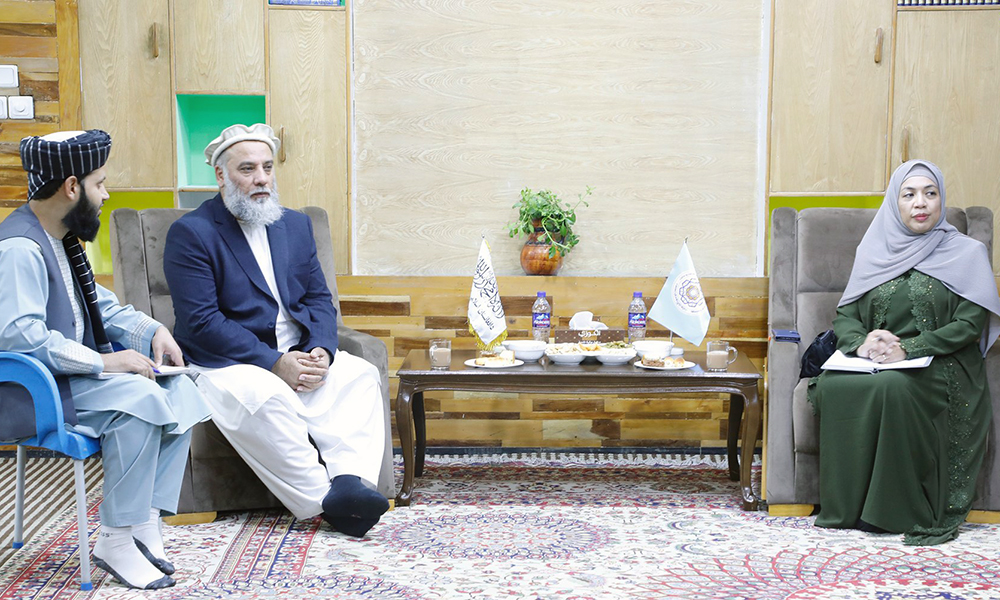
Nooruddin Azizi, Acting Minister of Commerce and Industry, met with representatives from the ministries of foreign affairs, defense and interior of Malaysia, along with other senior officials, on Wednesday and called on Malaysians to invest in Afghanistan.
The visiting delegation is being led by senior diplomat Dr. Shazelina Zainul Abidin.
According to the IEA’s foreign ministry, the two sides discussed bilateral trade, holding a business communication conference to strengthen trade relations between the two countries, the trade balance between Afghanistan and Malaysia, and creating a market for Afghan products, including carpets, cotton, and minerals.
According to the ministry, at the end of the meeting, the Acting Minister emphasized the increase of investment from regional countries in Afghanistan and called on Malaysian investors to also invest in Afghanistan.
Business
Afghanistan starts exporting via railway to Turkey

The Ministry of Interior says that Afghanistan has started exporting goods to Turkey via the Herat-Khaf railway line.
In a post on X, the ministry said: “Afghanistan’s exports to Turkey started in a calm atmosphere through the Herat-Khaf railway line.”
The ministry added that one train will run daily for a month and then two trains will run daily.
According to the ministry, the security of Khaf-Herat railway line is provided by the guards of the National Public Protection Agency.
Khaf-Herat railway project not only connects Iran and Afghanistan by rail, but also completes a 2,000-kilometer route along the east-west rail corridor from China, through Uzbekistan, to Afghanistan, to Iran, and on to Turkey and Europe.
As a landlocked country, this railway network will provide a safe route to connect with Europe via Iran’s railway network and Iran’s southern ports.
This railway line is strategic for trade between Iran and Afghanistan and will allow six million tons of goods to be sent between the two countries.
Business
Afghanistan, Kazakhstan to hold joint expo in Kabul
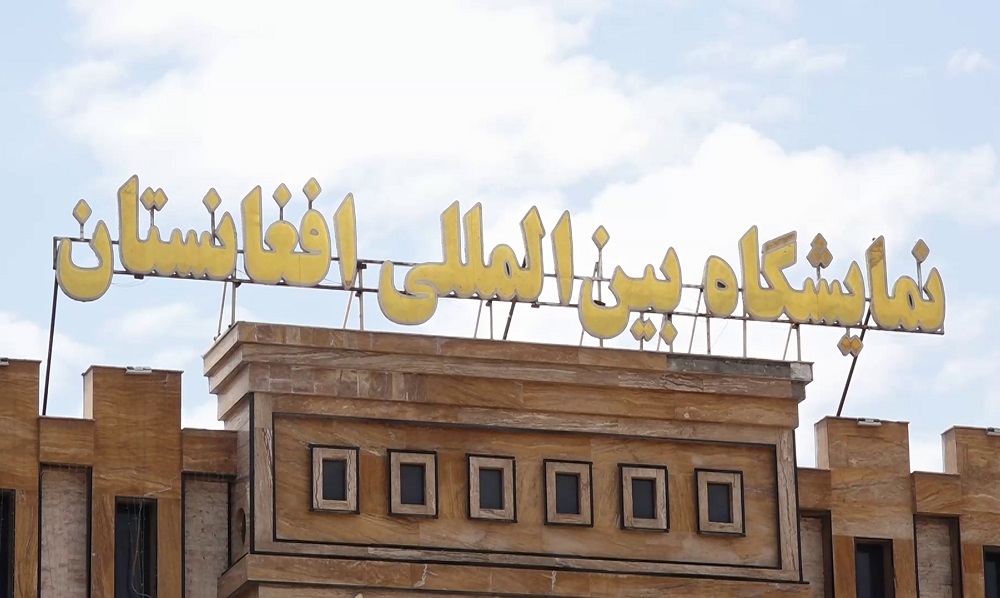
A joint expo between Afghanistan and Kazakhstan will be held in Kabul in the next four days, officials said on Sunday.
Officials of the Ministry of Industry and Commerce said that the two-day expo will be held for the purpose of expanding and strengthening trade relations between the two countries.
“This expo will be held as a follow-up of the Kazakh-Afghan international expo, which was held in the city of Astana, Kazakhstan, with the participation of a large delegation of the government and the private sector of the Islamic Emirate of Afghanistan,” Abdulsalam Javad Akhundzadeh, the spokesman of the Ministry of Industry and Commerce, said.
“At this expo, domestic products from different sectors of Afghanistan and the Republic of Kazakhstan will be put on display for two days.”
According to officials, 40 large Kazakh companies, and 40 large Afghan companies will exhibit their products.
Mohammad Saber Latifi, head of the Afghanistan International Expo Center, said that fruits, minerals and commercial services will be displayed at the expo.
During the expo, various memorandums of understanding for the trade of goods are also expected to be signed by companies.
-

 World5 days ago
World5 days agoNorth Korea officials visit Iran in a rare public trip
-

 Sport4 days ago
Sport4 days ago‘Serious talent’ Fraser-McGurk bonds with Warner to light up IPL
-

 Latest News4 days ago
Latest News4 days agoOver 1,000 Afghan refugees forced out of Pakistan in one day
-

 Sport2 days ago
Sport2 days agoAfghanistan beat Iraq 5-3, inch closer to Futsal World Cup berth
-

 Regional2 days ago
Regional2 days agoNew UK sanctions target Iranian drone industry
-

 Regional3 days ago
Regional3 days agoTurkey accuses U.S. of double standards over Gaza in rights report
-

 Latest News2 days ago
Latest News2 days agoEU allocates 17 million euros to support Afghans on the move
-

 Latest News2 days ago
Latest News2 days agoPakistan extends registered Afghan refugees’ stay till June 30




